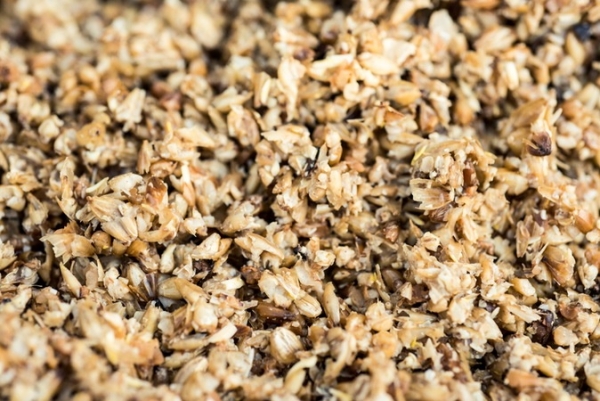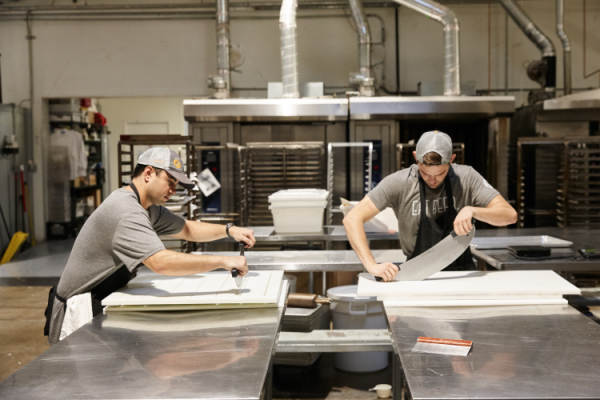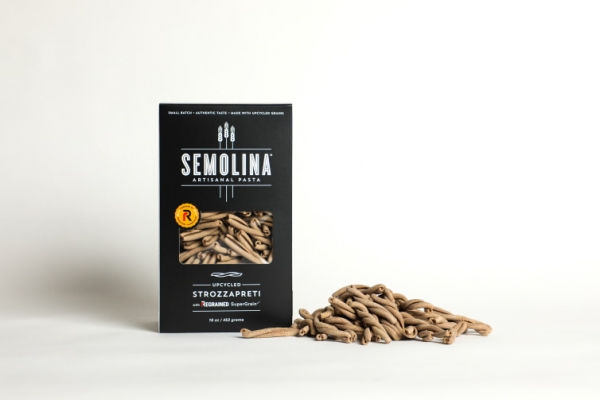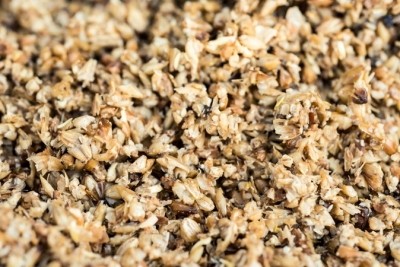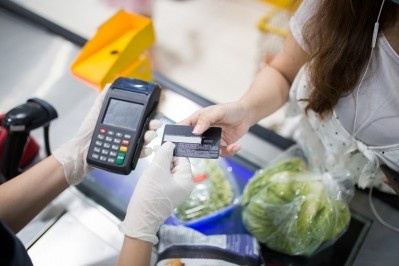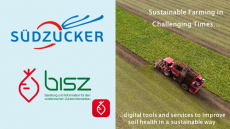ReGrained innovating in upcycled food for grains that deliver nutritional benefits

The statistics are by now familiar. Roughly a third of all the food we produce is wasted each year, meaning that if food waste were a country it would be the world’s third largest emitter behind only China and the USA. The moral implications of wasting so much food when as many as 811m people go to bed hungry worldwide are clear.
Reducing food waste therefore offers environmental and social benefits. Significantly, it also presents a sizeable economic opportunity.
The financial cost of food waste to society is estimated to stand at over $940bn per year, according to the FAO. Meanwhile, food loss non-profit ReFED estimates that an annual investment of $14bn over the next ten years can not only reduce food waste by more than 50% each year, but also result in an annual net financial benefit of $73bn. That’s a one-to-five return on investment.
Innovation is seen as a key lever to achieve global food waste reduction and unlock the economic potential of lost nutrition. ReGrained is one entrepreneurial company that is responding to this global problem with a pioneering solution.
Founded by a couple of home-brewers, ReGrained ‘rescues’ the grain created every time beer is brewed. “Our patented technology, which we co-developed with the United States Department of Agriculture, leverages a thermo-mechanical process to upcycle nutritious plant matter safely and efficiently from food processing by-products,” co-founder and CEO Dan Kurzrock explained.
He believes that the combination of environmental, social and economic incentives make upcycling a promising area for further development and scale-up.
“Qualitatively, upcycling has a direct impact on the financial bottom line. Wasted food equals wasted money. So, unlike other equally pressing solutions to climate change, the incentives are fortunately in the right places across the board for a more circular economy for upcycled food to take off in a major way.
“Economically speaking, value-added ingredients and products from brewers’ spent grain alone could easily be a multi-billion-dollar market opportunity.”
Functional ingredients for value-added applications
ReGrained creates limited-run branded products for sale through its website. But this is not the focus of the company’s business plan. Rather, ReGrained aims to establish itself as a business-to-business supplier of products such as its SuperGrain+ ingredient.
“The output of our tech is dry, stable, and suitable for various value-added applications in doughs, snacks, extrusions, beverages and more,” ReGrained’s Kurzrock revealed.
To support its work alongside food brands, the ingredient group has developed its Upcycled Food Lab, an innovation platform that enables collaboration with food makers to develop and launch ‘scalable and highly marketable’ upcycled food products. “We continue to be blown away by the application versatility of our SuperGrain+ ingredient, and continue to explore, ideate, and learn,” we were told.
“As a surprising benefit, our technology isn’t just highly energy efficient, but our yields also boast improved taste and aroma compared to conventional processing methods,” Kurzrock told FoodNavigator, suggesting that it can be used in both sweet and savoury applications.
SuperGrain+ ‘brings a lot to the table’ for product formulators – but it is important to understand it ‘does not perform like a baker’s flour’. “For example, although the ingredient is derived from barley and thus naturally contains gluten, the gluten’s functionality is extracted during the brewing process. So, for yeast-risen applications, it is important to not only optimize for the right inclusion ratio to deliver the great nutrient density and flavour… but also to blend with the ingredients that bring complementary functionality to deliver on the crumb structure.”
Packing a powerful nutritional punch
Alongside the functionality of SuperGrain+, it is worth noting that the ingredient also boasts nutritional positives, Kurzrock believes.
“The artist formerly known as brewers’ spent grain has well-documented nutritional benefits. It is easily one of our food system’s most overlooked and undervalued supply chains.”
He explained that flavour and nutrition is ‘concentrated’ in the brewing process. “Only the grain’s sugars are ‘spent’ during the brewing. We close the loop on the remaining fibre, protein, and other nutrients at scale to create a more circular food economy. As such, formulating with SuperGrain+ generally reduces net carbs and calories, while boosting fibre and protein levels.”
Indeed, SuperGrain+ delivers a ‘minimum’ of 3.5-times the dietary fibre and two-times the plant protein of whole grain and white flours on a pound for pound basis, the company revealed.
“It’s considered a good source of dietary fiber, which supports healthy digestion. SuperGrain+ also contains beta-glucan, a nutrient that promotes cardiovascular health and lowers plasma cholesterol. It delivers almost 75% fewer net carbs than all-purpose flour and more than 60% than whole grain flour,” Kurzrock claimed.
Consumer appeal spurs CPG innovation
The taste and nutritional benefits of SuperGrain+ can be leveraged alongside growing consumer awareness of food waste and upcycling, ReGrained believes.
Consumer demand for upcycled foods has rapidly increased since 2019, Kurzrock noted pointing to data from Mattson Proprietary Research, with 95% of consumers indicating they want to ‘do their part’ to reduce food waste and 57% reporting they intent to specifically buy more upcycled food.
“More broadly speaking and encouraging to see is that 42% of consumers report an increased awareness of the environmental impact their food choices represent while consumer consciousness of the positive impact food waste mitigation has on the climate crisis has grown 71% since 2019,” he said, citing the International Food Information Council and Spoonshot respectively.
This consumer appeal - alongside the sustainability, functional and nutritional performance of SuperGrain+ - is providing CPG brands with plenty of reasons to investigate the ingredient as an innovation route. Kurzrock said ReGrained has ‘dozens’ of projects in development with brands that ‘cover nearly every aisle of the grocery store’. The US-based start-up is also working with food service operators on fresh concepts for menu items, such as pizza. “From emerging to global companies, our product development projects run the gamut from reformulating familiar favourites to inventing new items all together.”
All the projects with large players are ‘under strict NDA’, but Kurzrock was able to share examples of some innovations that launched in the last year with smaller CPGs. These included the ‘Beast Mode Brownie' from Doughp, which incorporated SuperGrain+ into a sweet for twice the protein and six times the fibre as conventional flavours; a vegan ice cream from Bi-Rite that combined SuperGrain+ with coconut milk and roasted bananas; and an upcycled pasta developed with Semolina Artisanal Pasta. In commercial bakery, chain Panorama Bakery has developed a brioche that features ReGrained prominently in the dough alongside some Bavarain-style pretzels. “We have many other types of breads, cookies, and baked goods in the works,” the food founder added.
Building scale for impact
“We have come a long way since our roots as underage collegiate homebrewers, and today are actively collaborating with many of the world’s leading food companies to combat the global issue of food waste,” Kurzrock reflected.
But the journey isn’t over. ReGrained hopes to continue to build scale to increase its impact on nutrition security and food system sustainability.
“In our line of business, scale translates directly to impact. The more food processing by-products we upcycle, the more waste we reduce upstream, and the more nutritious food we can bring to consumers downstream,” the chief executive told us.
“Our ambition is to bring tasty and nutritious upcycled foods to every aisle of the grocery store and restaurant menu page. Ingredient producers, food businesses, consumers, and the planet all stand to benefit from upcycled food.”
This drive means that the company is also teaming up with brewers on the supply side as it is able to help them address the carbon footprint of their own operations. “On the supply side, we do collaborate with the brewing industry, including our strategic investors MolsonCoors. Opportunities include deploying our technology on-site as distributed infrastructure, increasing the capacity to supply locally and further reduce a company’s carbon footprint.”
In the future, ReGrained intends to grow its portfolio of ingredients as well as the variety of side-streams its patented technology can be applied to. In addition to its SuperGrain+ powder, which is already on the market, in 2022 the company plans to launch value-added industrial applications like crispies and blends.
ReGrained is also working on extending the side-streams it upcycles. “We developed the technology for brewers’ grain, but we have discovered it works well for other inputs like pulps from juice and residues from plant-based milks and more.
“All in all, we will tirelessly pursue our vision of reinventing our food system to one that is more circular, resilient, and equitable.”
